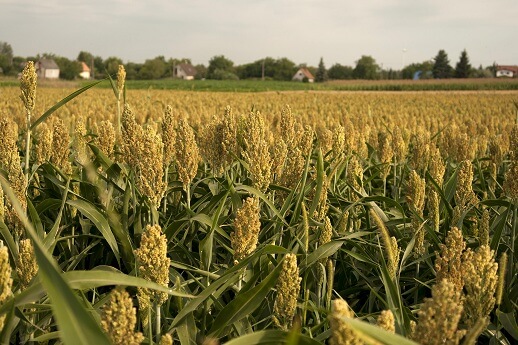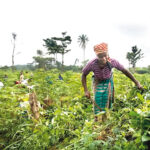The Federal Ministry of Agriculture and Food Security unveiled what it called the Nigerian Youth in Agribusiness Call to Action, a “call to duty” anchored on eight priorities ranging from agroecology and climate resilience to mentorship and intergenerational learning. This initiative particularly focuses on Nigeria’s youth.
Nigeria’s youth are becoming key players in agricultural transformation, utilizing technology and new practices to drive change in the sector.
Nigeria’s Youth: Catalysts for Agricultural Innovation
The manifesto signals a deliberate shift: agriculture is being reframed as innovative and inclusive, with young people actively shaping the country’s food future.
Nigeria’s youth are crucial to this transformation, bringing new ideas and energy to the agricultural sector.
It also aligns with established policies such as the National Agriculture Technology and Innovation Policy (NATIP) 2022–2027 and the revised National Gender Policy in Agriculture 2025–2030, which recognize the vital role of Nigeria’s youth in achieving agricultural goals.
From neglect to innovation
This shift reflects a growing recognition of the necessary role that Nigeria’s youth must play in ensuring food security and sustainable farming practices.
The story of agriculture in Nigeria is often depicted as one brimming with potential—but mired in neglect.
Today a young crop of entrepreneurs is attempting to flip the script. Digital platforms like Farmcrowdy and ThriveAgric have dismantled longstanding barriers to finance and market access.
By connecting farmers with investors, creating digital extension services and building resilience, they have shown that technology can empower even the smallest farmer.
The new call to action offers the chance to scale these sparks into a national blaze. By embedding agritech solutions within government frameworks, it builds on proven pathways, ensuring that success reaches every corner of the nation.
Inclusion as a priority
As Nigeria’s youth embrace agribusiness, they are also addressing issues of food security and climate resilience, making them vital to the future of agriculture in the country.
Innovation alone is not enough. Women—long the backbone of rural farming—have historically been denied access to land, credit and decision-making.
Organisations like ActionAid Nigeria and the National Gender Steering Committee have challenged this inequality, creating cooperatives, advocacy platforms and training programmes to help women claim their place in agribusiness.
The energy and creativity of Nigeria’s youth are essential in crafting innovative solutions to the challenges faced by the agricultural sector today.
With the integration of the call to action into the revised National Gender Policy in Agriculture (2025–2030), these gains are no longer isolated victories. They are poised to become the norm. It signals a future where gender equity is a right, not a favour—one where rural women can lead cooperatives, scale businesses, and contribute fully to national food security.
Equally powerful are the youth networks. The Local Action Network on Food Security (LANOF) has demonstrated that policy advocacy is not the preserve of politicians alone.
These youth-led initiatives are not merely focused on profit; they also aim to improve community resilience and empower local farmers through education and access to technology.
Youth, through LANOF, have taken ownership of food systems, reframing agriculture as enterprise and leadership. Their work in mobilization, mentorship and innovation has already shifted mindsets, encouraging young people to see the farm not as the last resort but as the next frontier.
The call to action mirrors this philosophy, tying youth creativity to national strategy. With support from international partners like the Heinrich Böll foundation, what once felt like grassroots experiments now holds the promise of national transformation.
What unfolded at the unveiling was the beginning of a narrative where youth, women, innovators and policymakers converge to script a different ending for Nigerian agriculture. This story is not one of problems alone but of pathways already opening. The solution lies in bringing together these scattered achievements into a fabric strong enough to carry the nation’s food future.
By investing in Nigeria’s youth, the agricultural landscape can evolve, fostering a new generation of leaders equipped to navigate the complexities of modern farming.
And in years to come, historians may look back at this day not as the moment when Nigeria’s fields began to bloom with a new generation of leaders.
The Federal Ministry of Agriculture and Food Security in Nigeria has introduced the "Nigerian Youth in Agribusiness Call to Action," focusing on eight priorities, including agroecology, climate resilience, and mentorship. This initiative aims to transform agriculture by reframing it as innovative and inclusive, aligning with existing policies like the National Agriculture Technology and Innovation Policy (NATIP) and the National Gender Policy in Agriculture.
The initiative seeks to transition Nigerian agriculture from neglect to innovation by supporting agribusiness entrepreneurs through digital platforms like Farmcrowdy and ThriveAgric. These platforms have removed financial and market access barriers, demonstrating the empowerment potential of technology for farmers. By integrating agritech into government frameworks, the initiative strives to scale successful models across the nation.
Inclusion, particularly for women who have historically faced inequities in agriculture, is a key priority. Organizations like ActionAid Nigeria and the National Gender Steering Committee have worked towards gender equity, enabling women to access resources and participate fully in agribusiness. The initiative intends to embed these advancements in the revised National Gender Policy, ensuring lasting change.
Youth involvement, credited to the efforts of networks like the Local Action Network on Food Security (LANOF), has led to the reimagining of agriculture as a domain for enterprise and leadership. With international support, this grassroots movement holds potential for national transformation. The unveiling marks a new chapter where diverse stakeholders unite to advance Nigeria's agricultural landscape, signifying hope for the nation's food security future.






